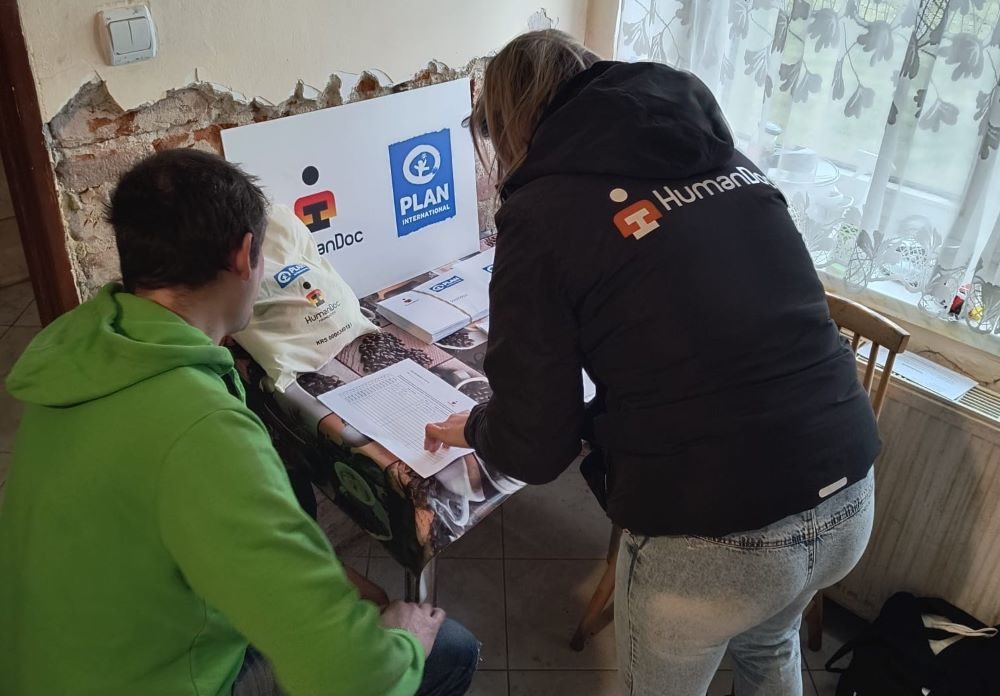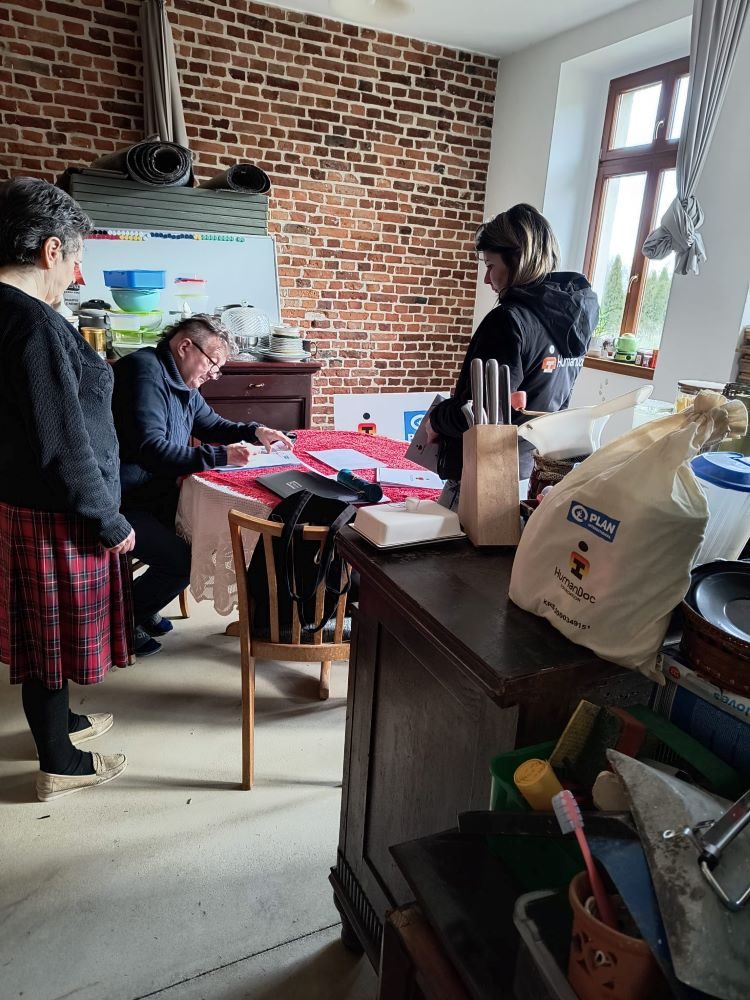Rebuilding after Storm Boris
16 May 2025In September 2024, Storm Boris caused widespread devastation across Central Europe. In Western Poland, the unprecedented damage led to complex needs that are still being addressed.

A HumanDoc worker helps a participant register for assistance. © Plan International
Last fall, Central Europe was shaken by the devastating flood caused by Storm Boris. Western Poland was greatly affected, requiring immediate response.
The unprecedented damage caused unexpected hardship, sharply increasing the need for mental health services. As one of the first responders onsite, HumanDOC witnessed a deep sense of loss and disorientation among residents. Entire neighbourhoods were submerged. Many people, especially the elderly and those with disabilities, were left to cope alone. Access to basic resources, flood debris, and unsafe housing made daily life extremely difficult.
Alongside our long-standing partner HumanDOC, Plan International Poland launched a project to support the affected population. Sharing core values—like striving for lasting impact—our top priorities were case management and mental health and psychosocial support (MHPSS).
Impact on children’s education
The storm significantly affected children’s education. Damage to schools and kindergartens caused prolonged closures, with students missing weeks of classes. Disrupted school transport, including non-operational buses, further hindered regular attendance, worsening the interruption to learning. Families reported children struggling with stress, anxiety, and isolation. The loss of routine, combined with limited mental health services, negatively impacted their well-being.
One facility damaged was a public preschool in Paczków, Opolskie Voivodship. Plan International Poland and HumanDOC collaborated to rebuild the preschool and replace destroyed equipment.
“I value the chance to contribute to recovery in communities that supported Ukrainians during our darkest times.”
Tetyana Polyak-Grujić, HumanDOC Project Coordinator
The aftermath on women and girls

The crisis disproportionately affected women and girls. Many elderly women undertook reconstruction work alone, which they were unprepared for. Others expressed grief over the loss of gardens. Single mothers struggled to support families while facing housing damage, rising expenses, and limited aid. For these women, access to case management and direct assistance remains crucial.
HumanDOC’s Project Coordinator, Tetyana Polyak-Grujić, shares, “As a Ukrainian living in Poland and working with HumanDOC to support flood-affected communities, this experience has been both valuable and thought-provoking. Having seen the consequences of war in my home country, I recognised the emotional and structural toll crises inflict—especially trauma, displacement, and institutional strain. Safety, dignity, and emotional support are universal human needs. I value the chance to contribute to recovery in communities that supported Ukrainians during our darkest times.”
Though progress has been made over the last six months, the situation remains complex. While the immediate emergency response has ended, long-term support is urgently needed. Many families are still living in temporary shelters or modular housing, awaiting official decisions on the habitability of their homes. Reconstruction costs have doubled, and many residents are trying to rebuild without professional help.
Categories: Education, Emergencies


